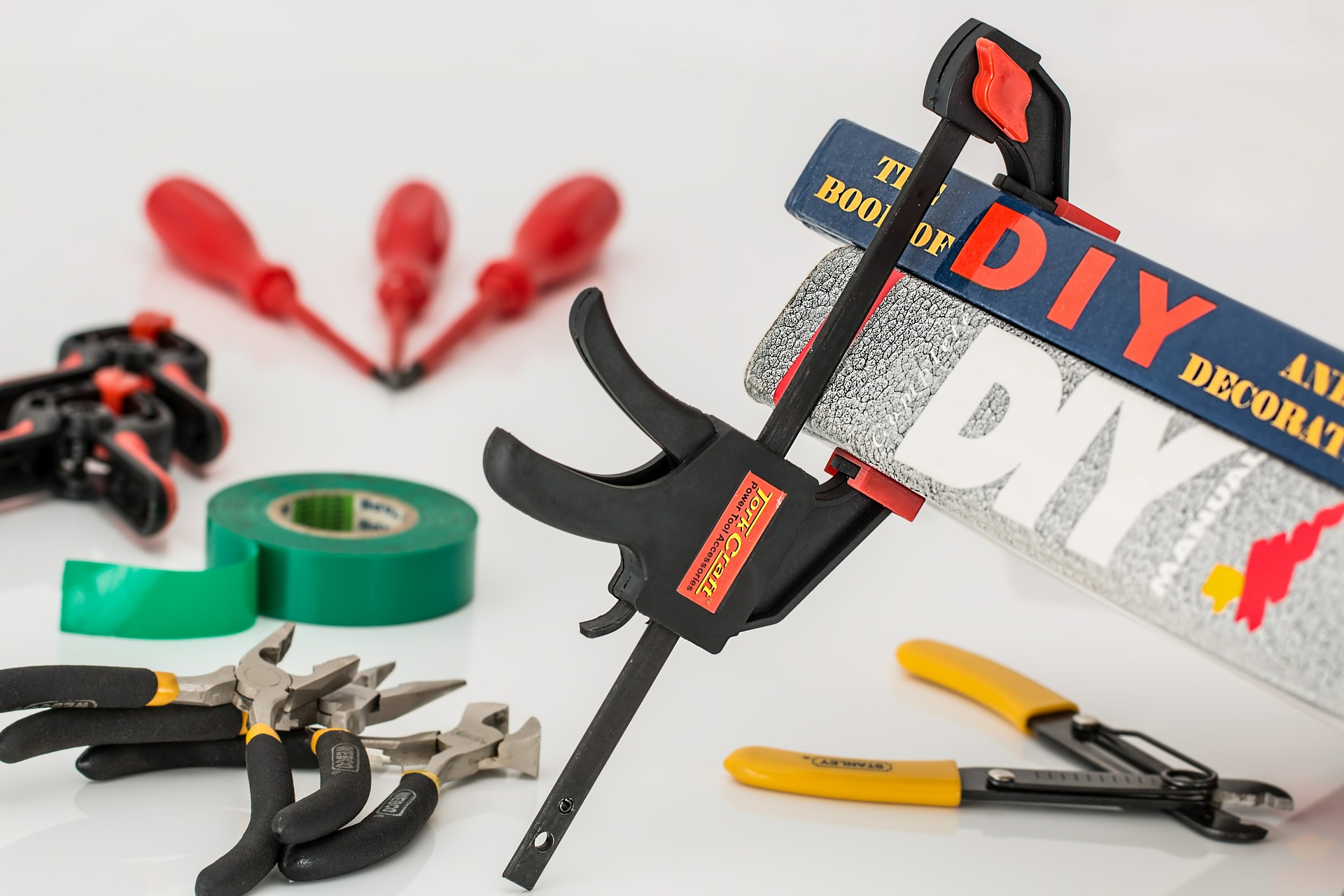Home Mods! Ideas, Resources & Funding

Reprint From Home Advisor
Every year, more Americans living with disabilities are able to call themselves homeowners. Thanks to support and legislation such as the Americans with Disabilities Act (ADA), having a home to call one’s own is now an achievable dream for more people than ever before. For many individuals, purchasing a home is only half the battle, since the nature of someone’s disability can impact many areas of life – including the way he or she accesses, maneuvers through, and enjoys activities at home.
That’s where the option of home modification comes into play. Whether you love the house you’re currently in or have plans to build a home that’s more accommodating to your disability, there are many different home modifications you can choose to implement. If you have stairs in your household but depend on the use of a wheelchair, a beneficial modification might be a chairlift. If a family member is blind, it might be useful to install grab bars in the shower. Or if you have a child with a mental disability, you may be able to better protect him or her from illness or injury by installing locks on cabinet doors that hold harmful chemical cleaners.
While renters have the responsibility to provide reasonable accommodations to tenants with disabilities under the Fair Housing Act, many homeowners with disabilities can’t afford these expenses out-of-pocket. But did you know that there are many different national programs whose mission it is to provide you with a safe, comfortable home by donating grants to those in need? Furthermore, most states also have local programs for easing the financial burden of installing home modifications, or even building a new home that meets the needs of all of its occupants.
This guide is designed to provide information on many of the available grants to improve your quality of life at home. You will find grants that are intended for all kinds of recipients, whether your disability is one you were born with or the result of a previous medical condition. You will find information on nationwide and state specific programs, as well as suggestions on what modifications may be the most rewarding for you.
The US Department of Veterans Affairs (VA) offers two different grants, the Specially Adapted Housing Grant and the Special Housing Adaptation Grant. For those who qualify, these can be used for the purchase or construction of a new home, or the modification of a currently-owned dwelling.
The Think Alive Achievement Grant is designed for youths 21 and under to help them accomplish their goals. This can be used for minor home modifications up to $500 in cost that is meant to help children achieve a specific goal. For example, if a child with a disability wants to learn to cook, you may choose to apply for funds that can be used to set up a safer kitchen space so he or she may practice his or her chef skills.
Rebuilding Together AmeriCorps helps many groups of people build new homes or modify existing ones. They pride themselves in working with families who have one or more members living with a disability to repair or modify homes to make them safer and more accessible.
The Rural Housing Repair Loans and Grants program is funded by the United States Department of Agriculture (USDA). Recipients must be 62 years or older and from low-income households. Funds may be used to modify existing residences, or can be used to install new home features that create safer living quarters for residents. State offices of the USDA also offer assistance at local levels, and some have broader eligibility requirements.
The American Red Cross provides financial assistance for eligible active military service members, veterans, and direct members of their families. If you became disabled while on duty, this organization may help you in effectively updating your home to meet your new needs.
The Army Wounded Warrior Program (AW2) provides financial assistance for qualified soldiers, veterans and their families for a variety of expenses. The goal of this group focuses on helping Army members maintain their independence, which can be aided by necessary home modifications.
The Self-Sufficiency Grant from ModestNeeds.Org seeks to offer support to individuals and families who need assistance, but don’t qualify as being “low-income” households. Their goal is to help ensure that families living just above the poverty line don’t have to spend their last dollar on necessities like adaptable home repairs.
The Individual Adaptive Equipment Grant from the Travis Roy Foundation is for those whose disability is the result of a spinal cord injury. It is open to all ages, and those who need home modifications such as ramp construction or grab bar placement are encouraged to apply.
The Gary Sinise Foundation’s Restoring Independence Supporting Empowerment (RISE) program was created by the Forrest Gump icon to honor the needs of war survivors who were injured during service to the United States military. The program provides grants for modifying existing living spaces or constructing new Smart Homes that offer the freedom for veterans to live comfortably and independently.
The Assisted Living Conversion for Eligible Multifamily Housing Projects (ACLP) is a program established by the US Office of Housing, Department of Housing and Urban Development (HUD). It is specifically for seniors who need home modifications to accommodate their needs, including those living with disabilities. Funds can also be used for personal assistance, such as an aide that assists with cooking, cleaning or personal care.
The Benevolent and Protective Order of Elks has hundreds of local chapters throughout
the United States. They offer support at individual and community levels. If you are a member, or are interested in becoming one, you can contact your local chapter to find out what kind of assistance you may be eligible to receive for your home modifications.
Lions Clubs International provide resources and financial help to those with a hearing impairment or visual disability. Local clubs sponsor many programs that may provide direct assistance to community members. To find out how they may be able to assist in your home adaptation efforts, you can reach out to your city or region’s local club.
To date, the American Parkinson Disease Association has funded more than $44 million in patient services for those suffering from disabilities due to the degenerative disease. You can check with your local chapter for grants, or find out what grant organizations they fund in your community that you may qualify for.
The National Council of State Housing Agencies (NCSHA) Housing Finance Agencies (HFA) offer individuals and families several different types of support. Their website provides a tool for locating available offices and organizations in your state that may be able to provide you with the assistance you seek.
The National Resource Center on Supportive Housing and Home Modification provides a state directory for finding a broad range of local resources for home modification financial aid. The organization’s website also offers helpful links and articles for those who have questions about building or restructuring an accommodating home.
The Rehabilitation Engineering Society of North America (RESNA) Catalyst Project aims to provide technology assistance for home modification. Funds are granted to individuals through state-level programs. You can find out what your state may be able to offer you by using this tool.
Additional Helpful Resources
There is ample information available as to what home features will work best for you. There are also many points of contact for learning how to make the most of your budget, whether it will be supplemented or covered by grant funding or not. The following resources offer helpful insight into advantageous home modification options, as well as additional agencies you may wish to contact to help you meet your needs.
The American Association of Retired Persons (AARP) offers many helpful resources for seniors living with disabilities. This article highlights some practical home modification ideas depending on your individual needs, such as visual impairment or immobility.
This resource provides helpful information on some of the different features you may want to include in your home to better manage living with your disability. It provides details on everything from kitchen, bathroom, bedroom and living room changes you may wish to consider when deciding on specific home renovations.
The National Association of Home Builders has teamed up with AARP and Home Innovation Research Labs to create the Certified Aging-In-Place (CAPS) program, which gives builders and remodelers special training in meeting the needs of elders who require home modifications. They may also be knowledgeable about available grants in your area.
The Social Security Administration (SSA) offers disability benefits, including those for veterans whose disability resulted from service injuries. The SSA also offers information on how to make the most of your benefits if you choose to continue working, so you can use this compensation to pay for necessities like home modifications.
If you have questions about other available means of support or education where you live, you may benefit from reaching out to your state or county’s local office. These departments can give you more information on who to contact about grants, other funding, or even support groups.
The fact that you have a disability, whatever its nature, should never make you feel like you are a prisoner in your own home. You should also never be made to feel that you are alone in your quest, as there are many organizations with the sole purpose of making your quality of life a top priority. Whether you own or rent your property, there are many methods of ensuring you feel comfortable and safe in your dwelling.
For more information visit the Home Advisor website at homeadvisor.com

